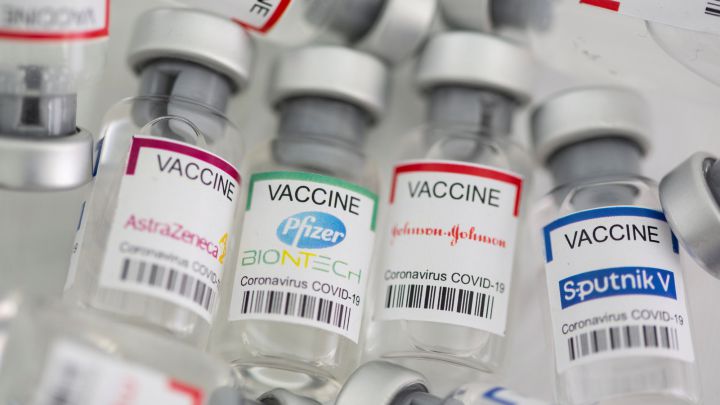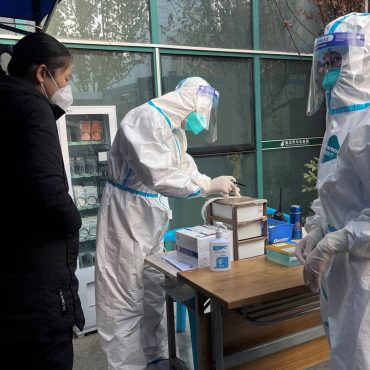-
 play_arrow
play_arrow
BayRadio Listen Live Broadcasting in Spain


The vaccination of children is the measure that completes the Community vaccination strategy. It has been one of the main objectives of the EMA which, in recent months, has made every effort to advance its authorisation. The goal was always that it could be approved before the end of 2021 but, after several technical discussions with the Pfizer company, it was possible to bring it forward to 25 November, when the final green light was given.
Experts know that vaccination campaigns for children will not be easy. Especially in countries where we have already seen more reticence and vaccination rates are still very low (Bulgaria, Romania, Poland, Slovakia, Austria…). The challenge is to overcome the fear of parents.
In Europe, some 27 million children between the ages of 5 and 11 are eligible for the vaccine. Spain seems to continue to lead this field, after being the territory with the highest rate among adults (90% of the adult population). For now it will be among the first countries to launch the campaign, as it will do so on 15 December.
On the same day, France will start with the most vulnerable children and Italy will do so one day later, on 16 December. But not all countries have the same vibe, a recent survey in the Netherlands found that 42% of parents with children between the ages of 5 and 12 did not plan to get them vaccinated.
The EMA has always tried to ensure product safety. It is based mainly on a study with 2,000 children in which efficacy exceeded 90.7% and the most common side effects were similar to those of adults, that is, mild or moderate and that disappear within a few days.
In his last public appearance, the head of the vaccine strategy of the EMA, the Italian Marco Cavalieri, was very clear in his explanations and wanted to reassure the parents also with the data that comes to us from the United States, where the vaccination of children began months ago and no notable safety problems have arisen. He also recalled that hospitalizations in Europe for children aged 5 to 11 years have increased in recent months and the vaccine could prevent this type of complications.
Pfizer vials-smaller than those of adults because they contain only a third of the dose-have begun to reach different countries. Now it will be each government that organizes how it administers vaccines. Surely the campaigns will be uneven. In fact there are governments that did not want to wait for the final approval and already began to immunize children before the authorization of the EMA. This is the case in Austria, Denmark or the German Land of Saxony.
In some Member States, options are already being devised to motivate the small ones. In Italy they plan to send clowns and jugglers to hospitals, and have come to create a superhero called “Captain Vaccine” who encourages children to get immunized. Alessio D’Amato, Head of Health for the Lazio region, points out that “vaccination must be a game, a joyful moment in which children can feel at ease”.
In France, the President of the Vaccine Guidance Board, Alain Fischer, has given three reasons to convince parents. The first is that children also get sick and hospitals continue to receive serious cases, even if this is not the most common. The second is to avoid the cascade of school closures.
Vaccinations could prevent a situation like that in Belgium, with 115 schools closed for contagion and the national obligation to finish classes one week ahead of Christmas. The third reason is to be able to limit at once the circulation of the virus in the general population. Experts remember that children are a very important vehicle of infection and we will only be able to stop it if we vaccinate them. In Spain the cumulative incidence in this age range (5-11 years) is much higher than the national average, it is about to double it.
Written by: BayRadio News
Similar posts
Recent Posts
- More than 120,000 patients treated: Quirónsalud Torrevieja, a benchmark in oncology and breast cancer treatment
- Pulmonary nodules smaller than two centimetres can be cured if detected early
- From the age of 60, four out of ten men develop some condition related to prostate cancer
- What are the most effective therapies for the rehabilitation of brain damage after a traffic accident?
- Hospital Quirónsalud Torrevieja: Pioneers In Gynaecological Robotic Surgery In Alicante

Ctra. Cabo La Nao, CC La Nao, Local 6 03730 Javea, Alicante, Spain
Advertise with us
Do you have a business in Spain? Do you provide a service to the expat community in Spain? Would you like your message to reach over 500.000 people on a weekly basis?
BayRadio is a community orientated radio station offering fantastic content to our many listeners and followers across our various platforms. Contact us now and find out what Bay can do for you!
Our business is helping your business grow.
BAY RADIO S.L. © 2024. ALL RIGHTS RESERVED. WEB DESIGN BY MEDIANIC







